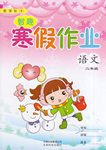题目内容
假定英语课上老师要求同桌之间交换修改作文,请你修改你同桌系的以下作文。文中共有10处语言错误,每句中最多有两处。错误涉及一个单词的增加、删除或修改。
增加:在缺词处加一个漏词符号(∧),并在其下面写出该加的词。
 删除:把多余的词用斜线( )划掉。
删除:把多余的词用斜线( )划掉。
修改:在错的词下划一横线( ),并在该词下面写出修改后的词。
注意:1.每处错误及修改均仅限一词;
2.只允许修改10处,多者(从第11处起)不计分。
My father took me out camping for the first time when I was seven. He wanted teach me about animals, insects and trees. My uncles all come along with bows and arrows for hunting.
One evening at sunset, we sat by the fire, have our barbecue. Just then a bird was flying over us. My uncles immediate jumped up and shot their arrows on the bird. Neither of the arrows hit the target. Suddenly the arrows was flying down at us from the sky — they were looked like rain! We ran to escape but fortunately no one was injured.
That day I didn’t learn much about animals, insects or trees, but I learnt a impressive lesson about gravity!
1.加to
2.come→came
3.have→having
4.immediate→immediately
5.on→at
6.Neither→None
7.was→were
8.删除were或looked
9.and→but
10.a→an
【解析】
试题分析:
1.
2.come→came 考查时态。上下文都是过去时,故此处也用过去时。come改为came。
3.have→having 考查非谓语动词。have应改为having,现在分词短语作伴随状语。
4.immediate→immediately 考查副词用法。此处应用副词修饰动词jumped,故immediate→immediately。
5.on→at 考查动词短语。shoot sth at sth 把……射向……,故on→at
6.Neither→None. 考查代词。此处的箭不是两支,故Neither→None.
7.
8.
9.and→but 考查连词。两个分句之间不是转折关系,故and→but。
10.a→an 考查冠词。impressive是以元音音素开头的单词,故用an。
考点:考查短文纠错

 智趣寒假作业云南科技出版社系列答案
智趣寒假作业云南科技出版社系列答案 was a hand-drawn of me, teeth blackened and the words “I’m stupid” coming out of my mouth.
was a hand-drawn of me, teeth blackened and the words “I’m stupid” coming out of my mouth.